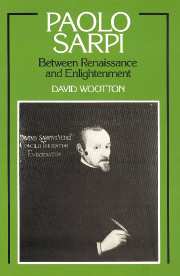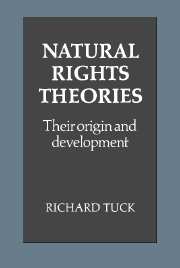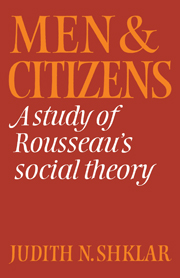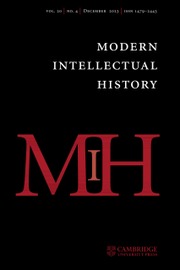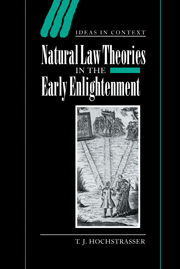
Natural Law Theories in the Early Enlightenment
Part of Ideas in Context
- Author: T. J. Hochstrasser, London School of Economics and Political Science
- Date Published: September 2000
- availability: Available
- format: Hardback
- isbn: 9780521661935
Hardback
Other available formats:
Paperback, eBook
Looking for an inspection copy?
This title is not currently available on inspection
-
This major addition to Ideas in Context examines the development of natural law theories in the early stages of the Enlightenment in Germany and France. T. J. Hochstrasser investigates the influence exercised by theories of natural law from Grotius to Kant, with a comparative analysis of the important intellectual innovations in ethics and political philosophy of the time. Hochstrasser includes the writings of Samuel Pufendorf and his followers who evolved a natural law theory based on human sociability and reason, fostering a new methodology in German philosophy. This book assesses the first histories of political thought since ancient times, giving insights into the nature and influence of debate within eighteenth-century natural jurisprudence. Ambitious in range and conceptually sophisticated, Natural Law Theories in the Early Enlightenment will be of great interest to scholars in history, political thought, law and philosophy.
Read more- Study of natural law theories in Germany and France in the early Enlightenment from Grotius to Kant
- Includes Pufendorf's theory of Eclecticism, a major force in intellectual life until the emergence of Kantian Idealism
- Comprehensively draws together the first histories of political thought since ancient times
Awards
- Winner of the annual Morris D. Forkosch Prize for the best book in intellectual history published in 2000
Reviews & endorsements
'Hochstrasser's Natural Law in the Early Enlightenment, with its splendid chapter on 'Leibniz and Pufendorf', is especially to be welcomed - not least as a heartening sigh that Leibniz's practical philosophy is slowly coming to be viewed as canonical even in the Anglophone world.' Oxford Academic Journals
Customer reviews
Not yet reviewed
Be the first to review
Review was not posted due to profanity
×Product details
- Date Published: September 2000
- format: Hardback
- isbn: 9780521661935
- length: 268 pages
- dimensions: 235 x 158 x 22 mm
- weight: 0.572kg
- availability: Available
Table of Contents
Preface
1. Introduction: natural law and its history in the early Enlightenment
2. Socialitas and the history of natural law: Pufendorf's defence of De Jure Naturae et Gentium
3. Voluntarism and moral epistemology: a comparison of Leibniz and Pufendorf
4. Christian Thomasius and the development of Pufendorf's natural jurisprudence
5. Natural law theory and its historiography in the era of Christian Wolff
6. Conclusion: the end of the 'history of morality' in Germany
Bibliography
Index.
Sorry, this resource is locked
Please register or sign in to request access. If you are having problems accessing these resources please email lecturers@cambridge.org
Register Sign in» Proceed
You are now leaving the Cambridge University Press website. Your eBook purchase and download will be completed by our partner www.ebooks.com. Please see the permission section of the www.ebooks.com catalogue page for details of the print & copy limits on our eBooks.
Continue ×Are you sure you want to delete your account?
This cannot be undone.
Thank you for your feedback which will help us improve our service.
If you requested a response, we will make sure to get back to you shortly.
×
